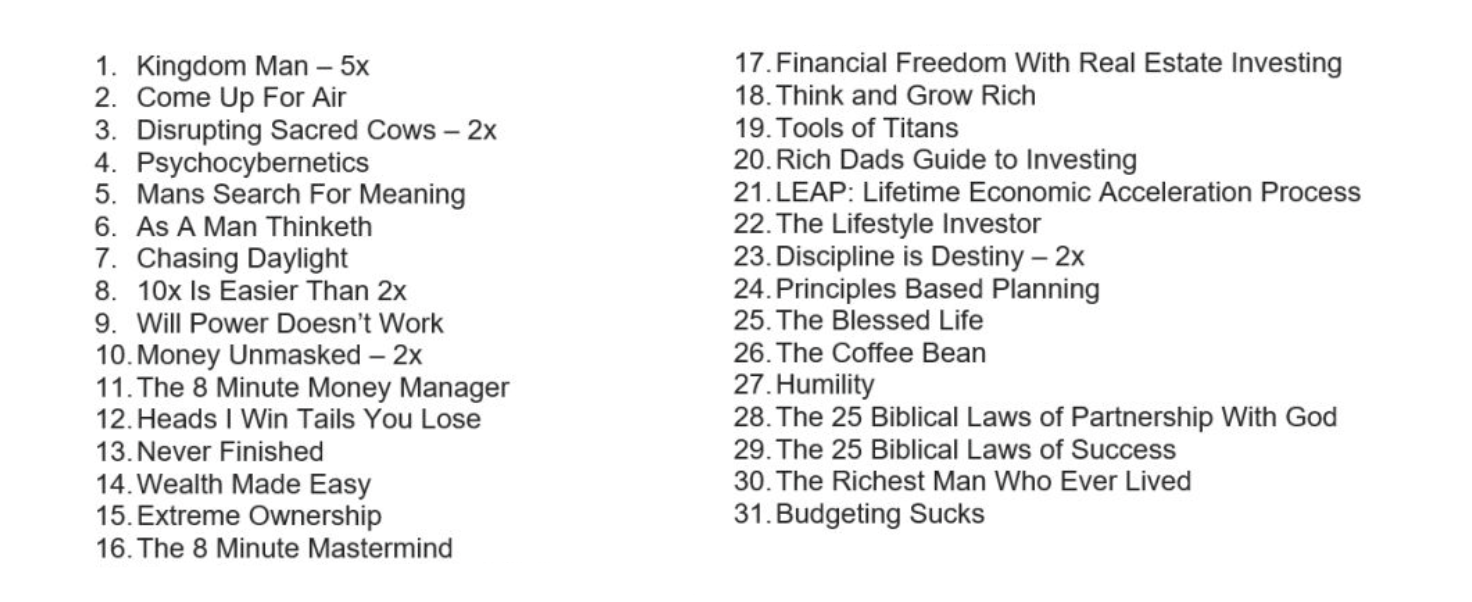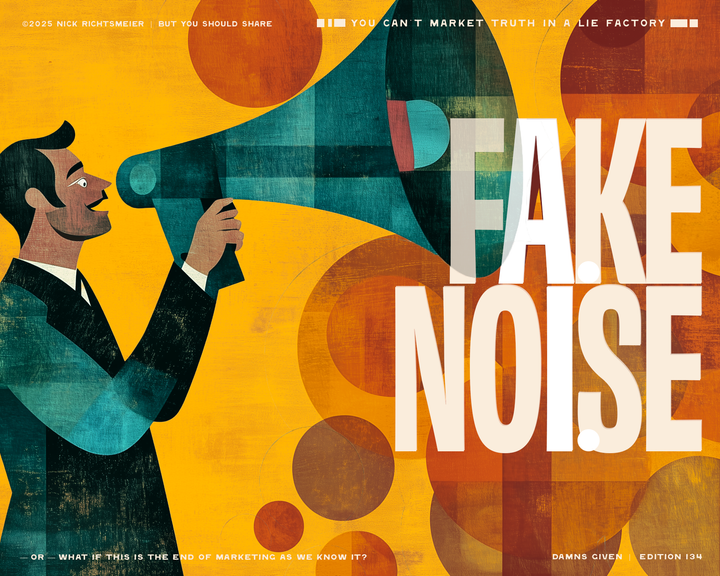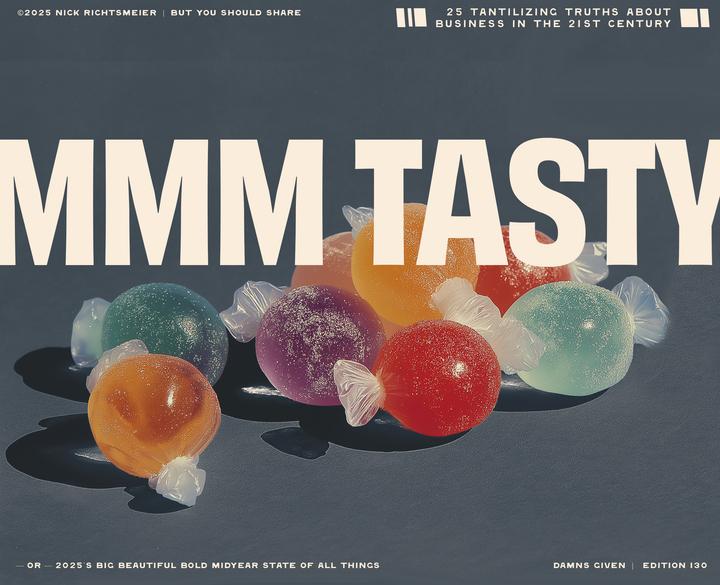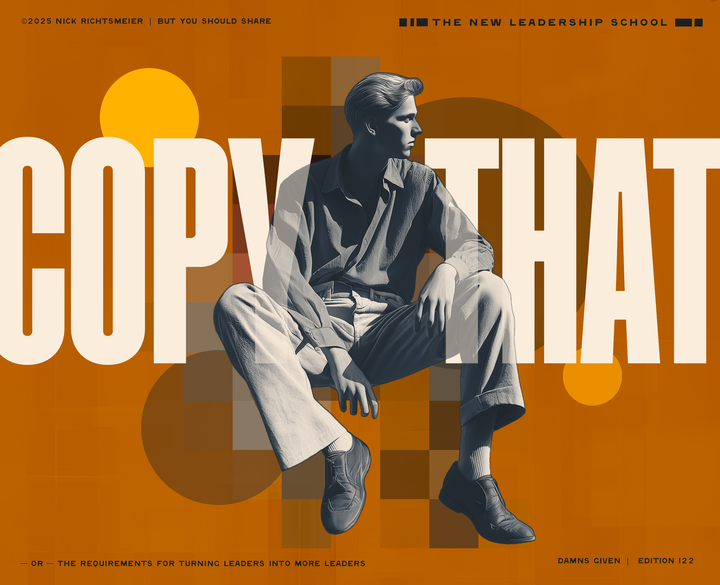Finally! Fewer CMOs (but more bad rashes)
Fewer CMOs is good news, more Jon Stewart is not, and how to read better to think better.

FWD Edition 93
Welcome to a full-speed 2024. Like you, I've been heads down these first few weeks getting the year steered in the right direction, so I'm free to make nudges—not pivots—as the rest of the year progresses.
Will this plan succeed? Time will tell.
Some of you are new here. (Don't worry, we make you stand and raise your hand; this isn't the First Baptist Church.) But when you're new, it's good to know what you're here for (besides a good time):
FWD is one of a collection of publications—we call them Editions—made by CultureCraft. You can subscribe to one or more or none. (Look at us, giving you options.)
The purpose of FWD is to break bad thinking. We can't just think in problem-solution. We've got to think "critically." Criticism is the business of asking, "What is the subtext and what is it telling us?" It also asks, "Is this good or just popular? Or just familiar?" All in service of, "How can we think better, and in doing so, do better?"
Thinking better is wildly unpopular. There's been a bear market on thinking at all for most of this Millennium. But I'm bearish on it, and I think you should be, too. It's the only way to stem the tide of mediocrity, create legendary organizations, or live a life you can wake up proud of each day. Three things that are as worth doing as anything.
How does thinking about AI bullshit and Oscar nominations and book recommendations change our thinking? The threads defining our assumptions, the shifts in culture, and the possibilities of what's next are all found out there, in the fabric of culture. Critical thinking in one place helps us find those threads somewhere else.
Because how we are in one place is how we are everywhere.
So let's get into it. Here are this weeks five damns worth giving and how to think about them (YES, NO, MAYBE, SERIOUSLY, and NOW):

YES...to chaos in the CMO role.
It's that time again when Chicken Littles run in circles, decrying the death of the CMO and all the horrors that means for business. This time, it's mixed in with a Content is Dead overlay, giving this particularly uncalled-for funeral a dramatic flair.
Facts? The CMO role has been in decline for some time. The turnover right is higher than the rest of the C-suite, the role eats the sin of every bad strategic decision, and the responsibilities of "marketing" as a business discipline have never been more unclear.
Put this at the feet of 15 years of marketers who said internet magic could guarantee a consistent ROI on investment and agencies that willfully built anti-client incentives into the marketing ecosystem. You cannot treat marketing like buying one widget part in your widget-making factory.
While I'm a 3x CMO, you'll find me thrilled that the role is getting deconstructed. In 90% of organizations, no one can agree on what it should do anyway. Every day, we're redesigning how market leadership in growing organizations works. And a CMO is not required.

NO... to the business book echo chamber.
One of the consistent reasons leaders (and their brands) fail at competing in their categories is because of how they learn. Leaders don't have structured learning systems. The ones that do, overperform by large margins. Instead, leaders fall back to the list of very tired, outdated, and, in some cases, downright useless books that get read repeatedly.
You should have a book plan this year. Even if it's audiobooks while you're on the elliptical, you need a plan. If that plan only includes war history books, self-help retreads of Think and Grow Rich, and members of the Simon Sinek cartel, you've got to expand. I give a few examples in my 2023 Good List. In contrast, here is a bad booklist. Don't let yours look like this in 2024 (taken from a very try-hard character on LinkedIn):


MAYBE... the Luddites were right?
In one of the most intriguing reads from 2024, Blood in the Machine gave me the real history behind the term "Luddite," a derogatory usually referring to anti-tech and (obviously) anti-progress people. It turns out the Luddites weren't anti-progress as much as they were anti-exploitation, which is something we could all get behind.
What they missed, perhaps, was the power of using tech to fight its own issues, like this incredible advancement that hit social media like a storm last week. Imagine an imperceptible bit of digital code manipulation that makes your work immune from web scrapers. As we progress through the second Gilded Age, society may rebalance with some thinking from the first. Maybe the Luddites were right?


SERIOUSLY... Jon Stewart is back?
There's something disconcerting about Mr. Stewart's boomerang move back to the hosting desk at The Daily Show. His talent for the role is non-negotiable, but we are well-served to ask... Why?
Why can't we move on from the same voices? (and candidates?) The Baby Boomers seem to produce a steady stream of Boomerangs, people who hit the road to freedom (only to come back and reclaim their position atop the heap.
It's happening in C-suites, political offices, and the media. How many times do we need to nominate Marty Scorcese for an Oscar he won't win for a film that wouldn't even break his personal Top 10? Like a bad rash... as they say. And Jon Stewart's return does not bode well for fresh thinking in fresh times as the Atlantic so swiftly pointed out.
In the same vein, so many businesses have a G2 challenge... unable to build a team of talent that the Founder or the board is willing to trust. One must wonder: how much of this is about the talent and how much of this is about the trust?

NOW... reclaim your time.
We all know there is a constant pressure to "make shit happen!" in January. Goals have been set. KPIs have been locked in. L10 meetings have started their drone.
Doing for the sake of doing is a notorious Q1 quality. Loud voices take over, imposing their self-important tasks on well-meaning bystanders.
So here's what I want you to do. The next time (probably later today) you see the rising tide of wasted time, use a trick I call "Harden the Soft Costs."
Take a rough count of the hourly rate of everyone involved. Then double it. (That covers benefits, taxes, and wasted time not accounted for.) Now, take that number times the hours invested in a decision. Suddenly, this meeting costs $7000. This email chain with seven execs on that everyone has been engaging for the last two weeks? $9500. Is there any decision here that is worth $9500 to you?
People get really decisive, really fast. Time is not money. It's actually worth way more. But by putting a price on time, you can at least avoid spending it in frivolous ways.
See you next... time. (Sorry/not sorry)



